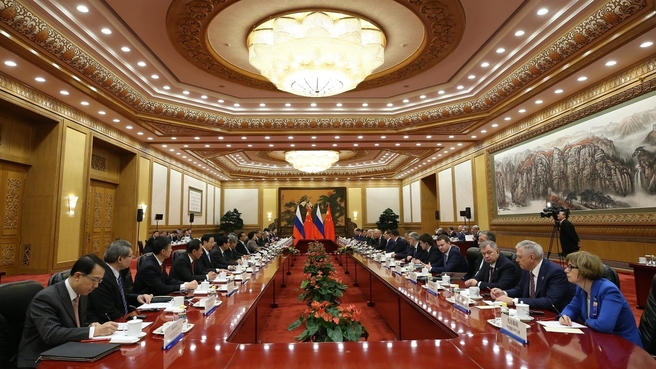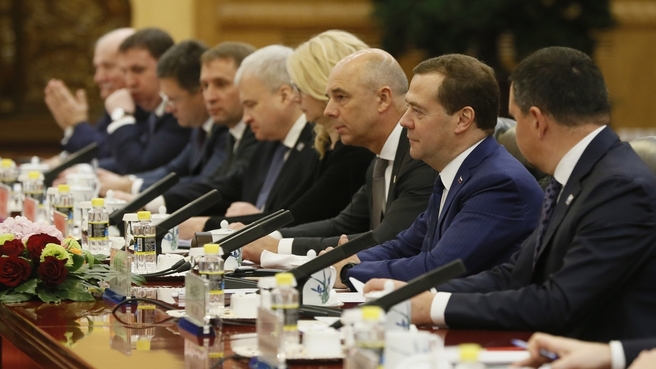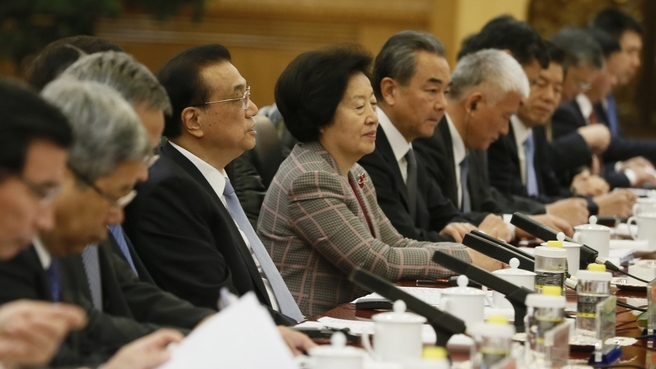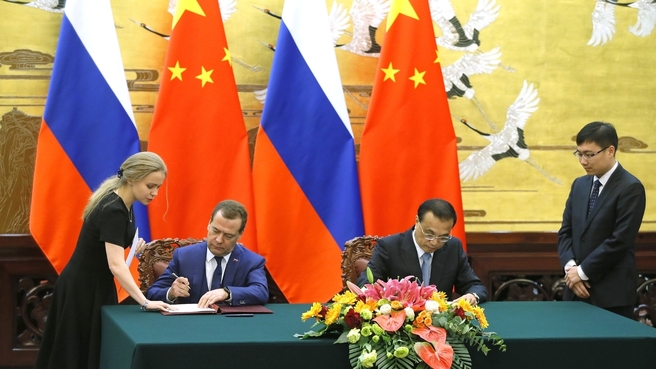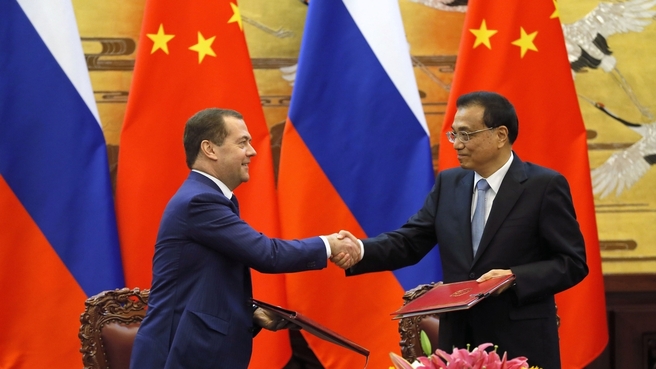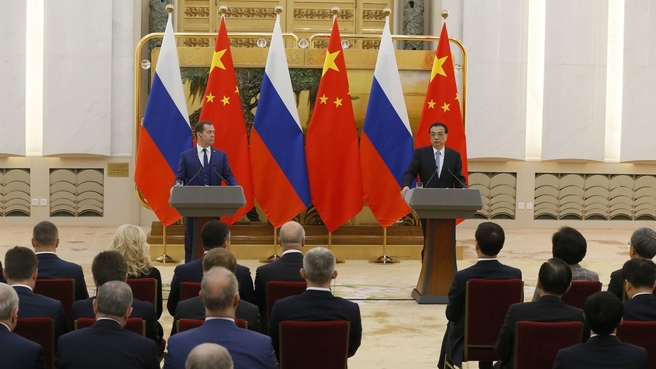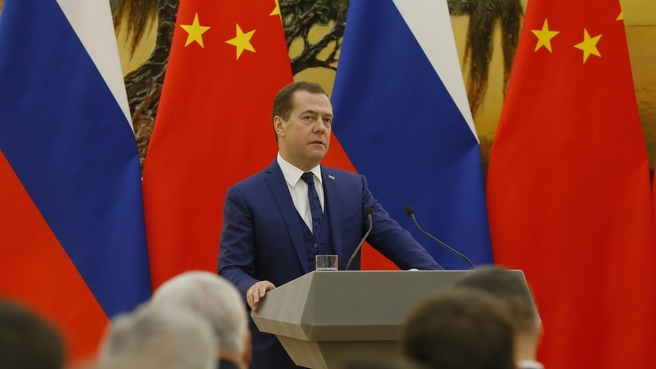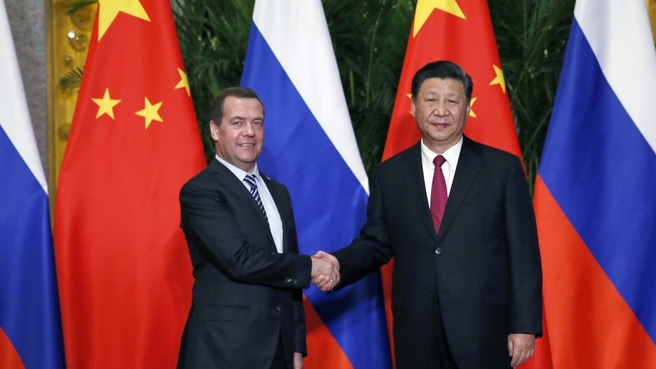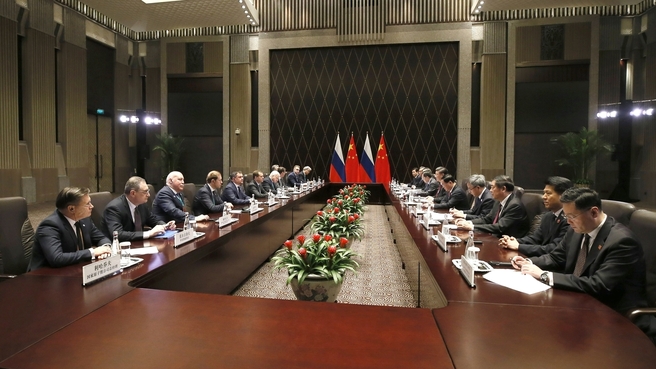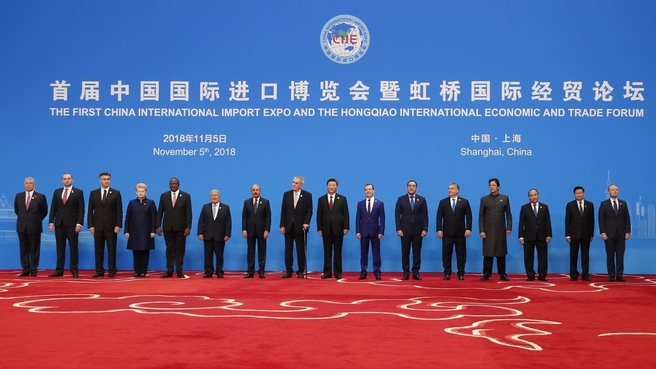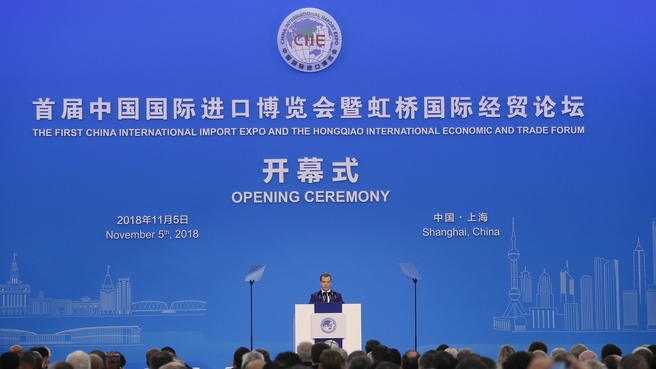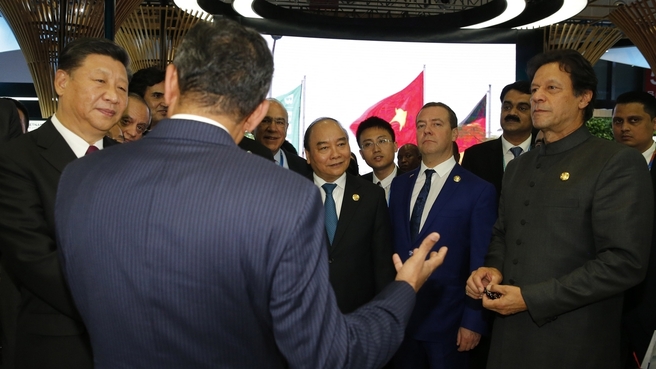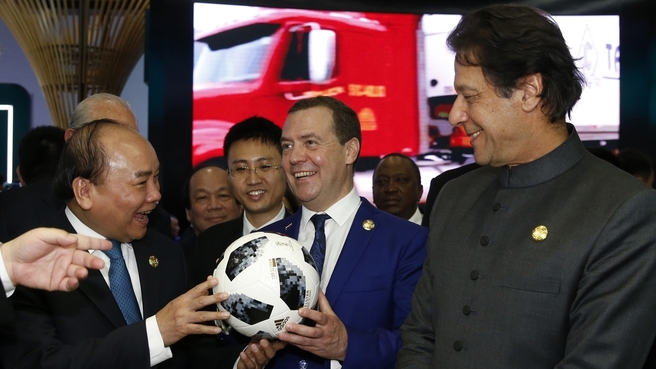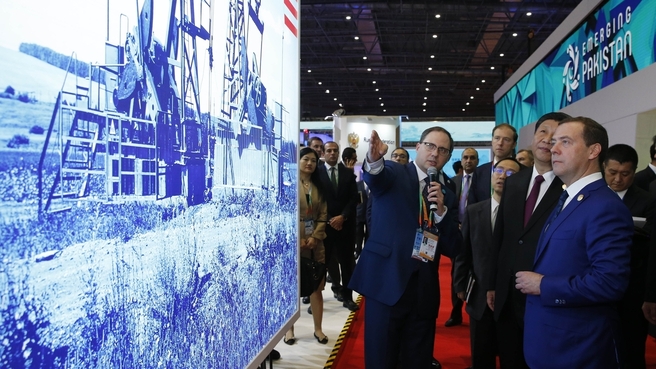News conference by Dmitry Medvedev
The Prime Minister answered questions from the Russian media on the results of his visit to China.
Excerpts from the transcript:
Dmitry Medvedev’s news conference for Russian journalists
Question: Your visit to China is coming to an end. You attended China’s first International Import Expo in Shanghai, where Russia received the status of a partner country. You also took part in a regular meeting of the heads of government of Russia and China and signed a number of bilateral documents. Which areas of continued cooperation with China would you highlight? Which industries hold the best cooperation prospects? For example, have you reached an agreement on a substantial increase of Russian agricultural exports to China?
Dmitry Medvedev: All of you saw what happened in Shanghai and Beijing. Let’s begin with Shanghai. It is a really interesting idea of our Chinese partners to hold an annual imports exhibition. It is especially interesting that it has been proposed by China, which is famous for its exports capability. It has huge revenues from exporting its products around the world. At the same time, it is also a very large market, which, as our partners say, is open to products from many countries. Russian companies have come to the expo. I looked at what they brought and saw that they offer goods of the biggest interest to the Chinese market, including agricultural products and foods. China has a very large population, as you know, which is why it is a major food importer. Russia as an agriculture leader must use this opportunity to enhance its positions.
This brings me to the second part of your question. Indeed, I discussed agricultural deliveries with President Xi Jinping, during restricted format talks with Premier of the State Council of China Li Keqiang and the intergovernmental consultations, that is, during the 23rd meeting of the heads of government. There were certain restrictions until recently; they concerned the import of poultry meat and dairy products. We are working with our Chinese partners to gradually lift these restrictions. Today we signed two protocols on this subject. The document was signed for Russia by Rosselkhoznadzor (the Federal Service for Veterinary and Phytosanitary Surveillance). This will allow our agricultural producers to enter the Chinese market. The Chinese are consuming a lot of dairy products, unlike in the past. They also eat a lot of meat. This is why the opening up of these segments is very important. I would like to emphasise that this concerns regional suppliers, who must operate with due regard for the sanitary and epidemiological requirements and the regionalisation principle we have chosen in order to increase the delivery of our agricultural products to the Chinese market.
Another major sphere of cooperation all Chinese officials highlighted today is soybeans delivery. The demand for soybeans is huge in China, which has a vast soybean market. China imports some 95 million tonnes of soybeans a year, including more than 30 million tonnes from the United States. Considering the current trade problems in US-China relations or, more precisely, the protectionist US policies towards China and several other countries, European countries as well as Russia, a part of the soybean segment on the Chinese market has become available. We have agreed with our Chinese partners that we will reinforce our positions in this segment, which is quite good for us. On the one hand, this offers an opportunity to bring our products, including soybeans, to the Chinese market. On the other hand, we can increase soybean production in Russia, primarily in the Far East. This is where we grow soybeans, and now we must prepare new fields for cultivating more soybeans.
Therefore, we can report very good results. We have also signed documents in other spheres. These concern high technology and high-tech cooperation, including space exploration, energy and several other sectors where we are cooperating. As usual, we signed the final protocol following these consultations. Traditionally signed by the prime ministers of Russia and China, this protocol reflects the outcome of the talks and, ultimately, includes instructions on the further operation of our agencies. The outcome is very positive. We hope that it will take the form of new achievements in our partnership with China.
More to be soon…
